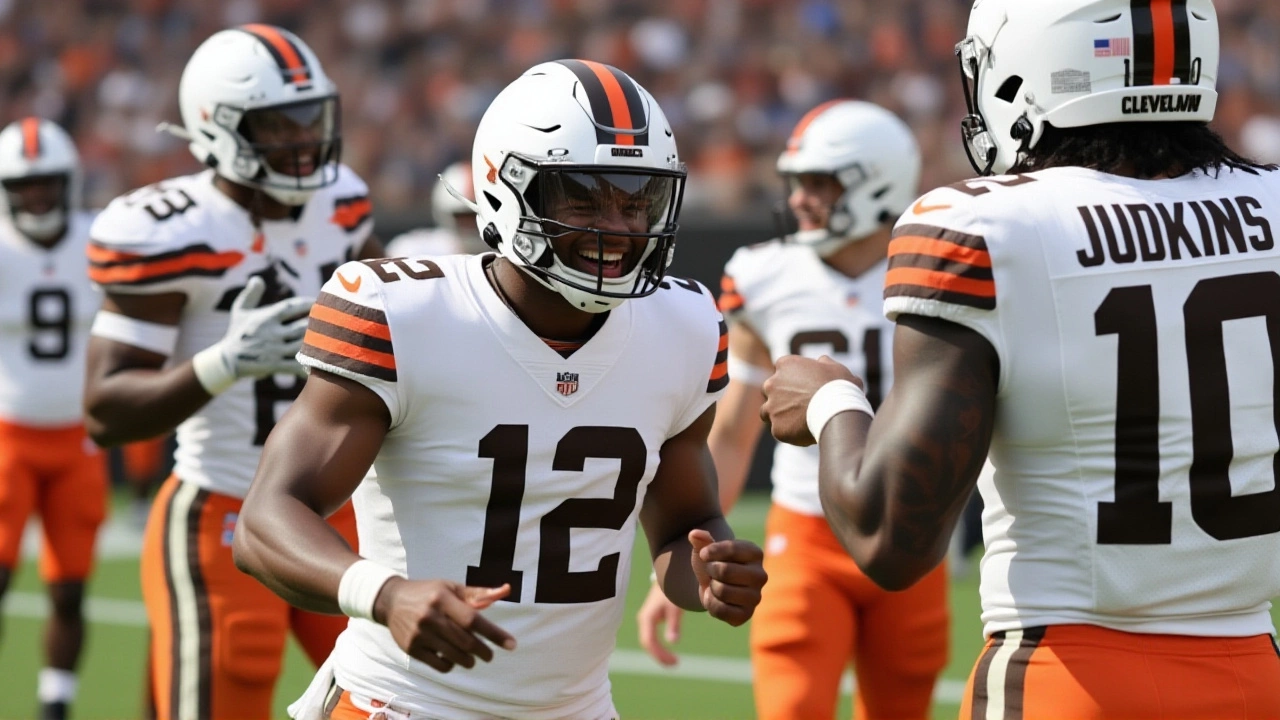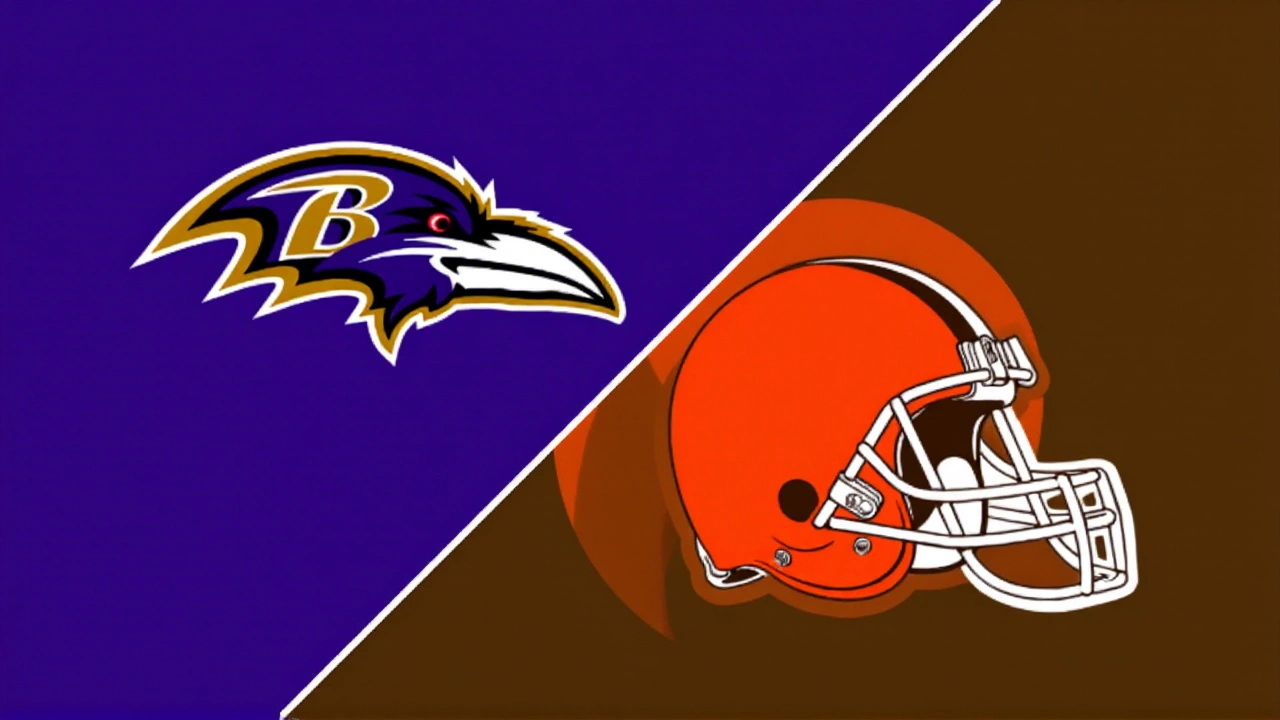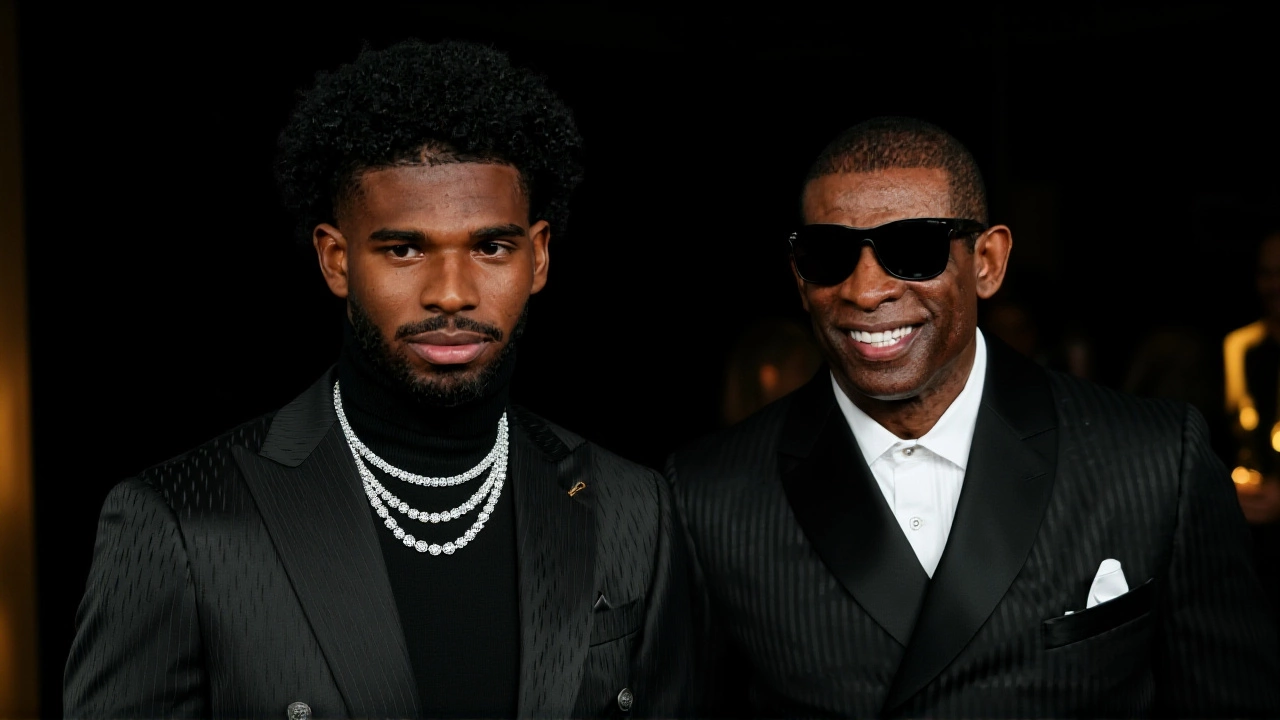When Shedeur Sanders took the snap at Allegiant Stadium on November 24, 2024, he wasn’t just playing for a win—he was carrying the weight of nearly three decades of frustration for the Cleveland Browns Football Company. The 22-year-old rookie quarterback threw for 209 yards, one touchdown, and one interception in a 24-10 upset over the Las Vegas Raiders, becoming the first Browns rookie starter to win his debut since Jim Harbaugh did it in 1995. That’s 29 years. Seventeen straight losses. And now? Gone.
A Moment Decades in the Making
The Browns haven’t had a rookie quarterback win his first start since Harbaugh threw for two touchdowns against the Bengals. Since the franchise’s 1999 reactivation, every single rookie who got the nod as a starter lost. Some were drafted high. Others were last-minute fills. None broke through. Until now. Sanders didn’t just play well—he played with poise under pressure, avoiding sacks despite facing Maxx Crosby, the Raiders’ 5.5-sack menace. He didn’t force throws. He didn’t panic. And when the offense needed a spark, he trusted the run game—Quinshon Judkins powered in for two short touchdowns, turning the game into a grinding, clock-eating affair.The Father in the Stands
If you’ve ever watched a college game where Deion Sanders roamed the sideline in a tracksuit, yelling like a man possessed, you know what this moment meant. The Hall of Fame cornerback turned head coach of the University of Colorado Boulder didn’t just show up—he traveled across the country, sat in the stands, and watched his son’s first NFL start. At the 25:30 mark of the broadcast, he met Shedeur on the field. The exchange was brief. “Played good,” Deion said. No fireworks. No tears. Just a father’s quiet approval. It was the kind of moment that doesn’t need a microphone.The Rivalry That Sparked a Moment
The real human drama came after the final whistle. At 23:10, Sanders walked up to Crosby, still in his pads, and cracked, “Why you tried to hit the s--t out of me?” Crosby, grinning, shot back: “It’s what the f--k I do.” No hard feelings. Just football. That exchange—raw, real, unfiltered—went viral before the final stats were even posted. It wasn’t just a win. It was a rite of passage.
Why Fans Flocked from Coast to Coast
David Stewart, a Houston resident and Ohio State alum, flew in from Texas, woke up at 3:30 a.m., and flew back that night—just to see this game. “I’ve followed him since Jackson State,” he told reporters. Gary Dock, from Warrensville Heights, Ohio, said, “We have a lot of people from around the country that are just becoming Browns fans just because of him.” Jersey sales spiked 320% in the 48 hours after Sanders was named starter. Sproling, a fan wearing a bright orange jersey with brown stitching, bought his tickets the moment the announcement dropped. This wasn’t just about football. It was about identity. Hope. A new generation claiming a franchise that’s spent too long in the shadows.What Comes Next?
The Browns are now 3-9. The Raiders? Also 3-9. But the narrative has shifted. Head coach Kevin Stefanski and president Andrew Berry now face a real decision: Is Sanders the future, or just the spark? His backup, Dillon Gabriel, remains on the roster. But after this game, the question isn’t whether Sanders deserves to start again—it’s whether they can afford to take him off the field. Week 14 against the Pittsburgh Steelers at Acrisure Stadium on December 8 isn’t just another game. It’s the next chapter.
Breaking the Streak Wasn’t Luck
Let’s be clear: Sanders didn’t win because the Raiders were bad. They were 3-8 and coming off a win over the Chargers. He won because he managed the game. He didn’t try to do too much. He didn’t force throws into coverage. He let the offense breathe. And when the defense came after him, he stayed calm. His 47-yard, 4-of-16 performance against the Ravens in Week 12? That was the old story. This? This was a new one. His post-game quote—“A lot of people wanted to see me fail. It ain’t gonna happen”—wasn’t bravado. It was a declaration. And for the first time in nearly 30 years, Browns fans believed it.Frequently Asked Questions
How does this win impact Shedeur Sanders’ future with the Browns?
This win immediately shifts the quarterback conversation in Cleveland. With Dillon Gabriel still on the roster, the Browns now have a legitimate dilemma: keep the veteran backup or lock in Sanders as the long-term solution. Given his composure, decision-making, and the fan response, it’s unlikely he’ll be benched for Week 14 against Pittsburgh. The organization’s decision will signal whether they see him as a stopgap or their franchise quarterback.
Why was Deion Sanders’ presence so significant?
Deion Sanders isn’t just a famous dad—he’s a cultural icon who turned around the Colorado football program and played in the NFL and MLB. His presence wasn’t just emotional; it was symbolic. He’s the only person who could’ve carried that kind of weight into that stadium. His quiet approval afterward—“played good”—meant more than any press conference. For fans, it validated Shedeur’s journey from Jackson State to the NFL.
What made this win different from Shedeur’s previous NFL appearance?
In Week 12 against Baltimore, Sanders went 4-of-16 for 47 yards with an interception and looked overwhelmed. This time, he completed 11-of-20 for 209 yards, avoided sacks, and made key throws under pressure. The difference? Confidence. The offense was more balanced, the line protected better, and Sanders trusted his reads. He didn’t try to be a hero—he became a quarterback.
How does this affect the Browns’ 2025 draft strategy?
With a 3-9 record, the Browns still hold a top-10 draft pick. But if Sanders continues to play like this, they may pivot from targeting a QB early to upgrading the offensive line or secondary. His performance reduces the urgency to draft a quarterback in 2025, potentially allowing them to address other needs or even trade down for additional picks—something they couldn’t have considered before this win.
What’s the historical significance of ending this 29-year streak?
The Browns’ rookie QB losing streak was one of the most persistent in NFL history—longer than the droughts of teams like the Lions or Browns themselves in other categories. Jim Harbaugh’s 1995 win was the last time it happened. Since then, 17 rookies started and lost. Shedeur Sanders didn’t just break a streak—he rewrote the narrative of a franchise that’s been defined by near-misses. This win could become the turning point the Browns have waited for since the 1990s.
Did the crowd at Allegiant Stadium reflect the national interest in Shedeur Sanders?
Absolutely. Even though it was a Raiders home game, the stadium was packed with Browns fans—many wearing Sanders jerseys. Social media showed fans from Ohio, Texas, and even California traveling specifically for this game. Ticket resale prices spiked 400% after his starter announcement. This wasn’t just a football game; it was a cultural event. The NFL has seen moments like this before—think Cam Newton’s debut—but rarely with this level of personal narrative attached.
